reason

Shermer and Young discuss: how do you know if you are wrong, or that someone else is wrong • the evolution of reason: veridical perception or group identity? • the 3 “Cs” of our needs: comprehension, control, community • open-minded thinking • intellectual humility • political polarization • echo vs. identity chambers • social media • lies • disinformation • Donald Trump • democracy • science and morality • solutions to identity-driven wrongness.
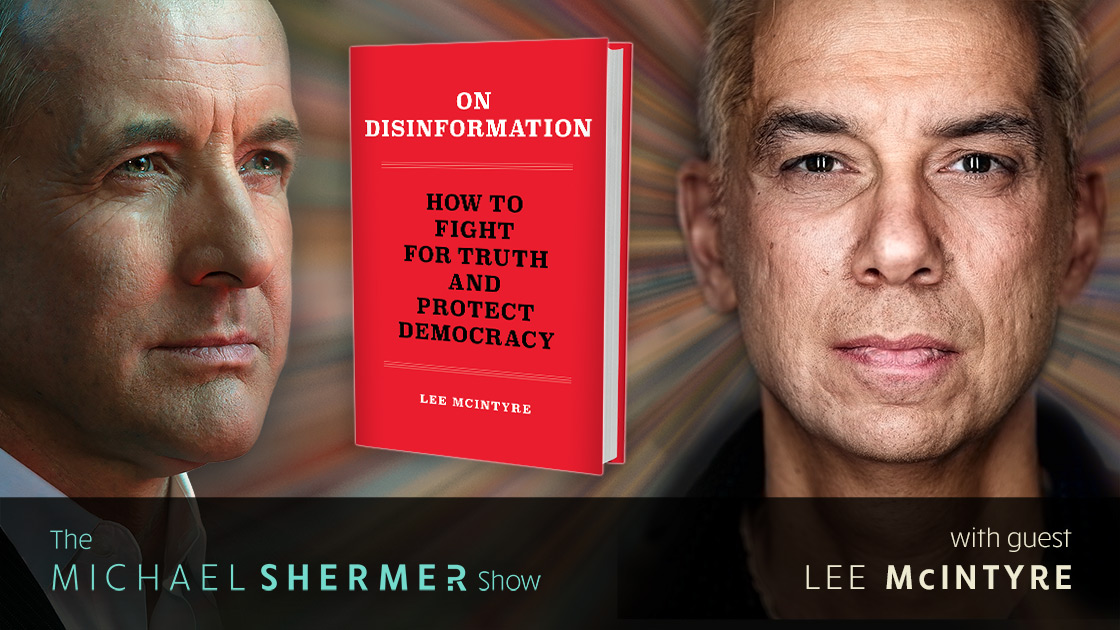
Shermer and McIntyre discuss: default to truth theory • RFK Jr. • whether reason evolved for veridical perception or group identity? • How do we know what is true and what to believe? • worst case scenarios if Donald Trump wins in 2024 • trans issues, race issues, GMOs, nuclear power, climate doomsdayism • What went wrong during the COVID-19 pandemic? • disinformation about masks, vaccines • social media and disinformation.
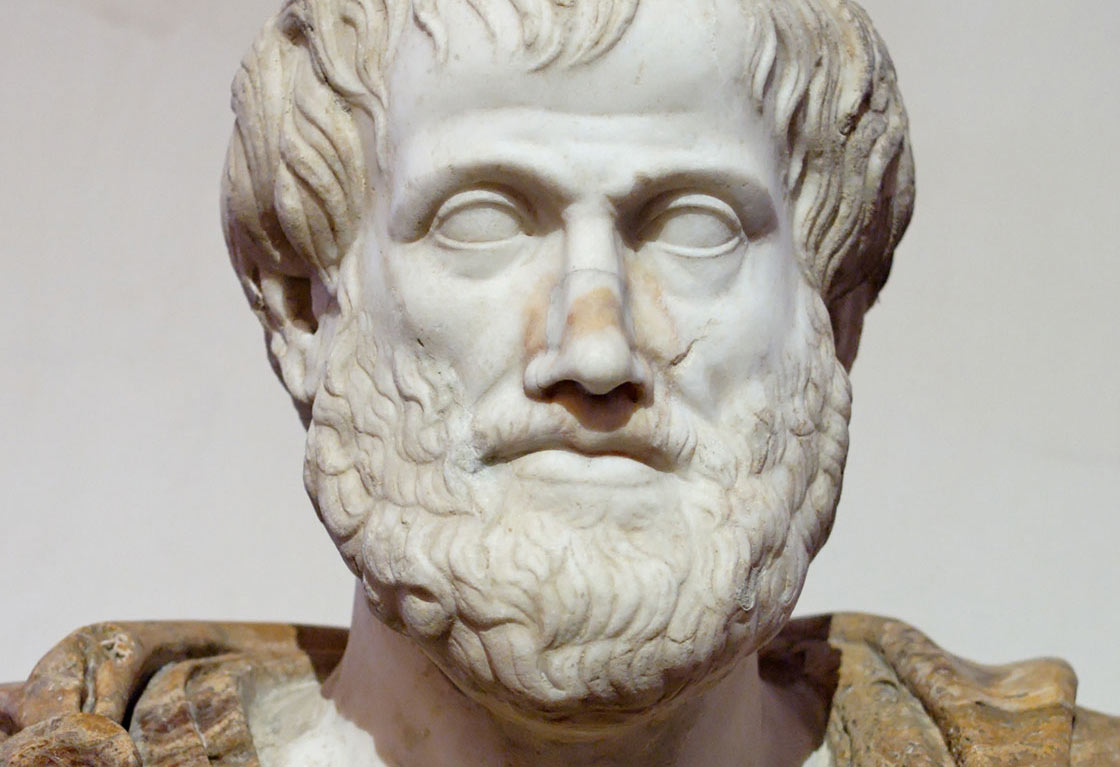
If you search the web or look in introductory science textbooks, you will find the hypothetico-deductive (H-D) method often depicted as the scientific method. However, the H-D method is inadequate as a description of the scientific method, especially when it comes to assessing pseudoscientific or other dubious claims. An alternative to the H-D method more […]
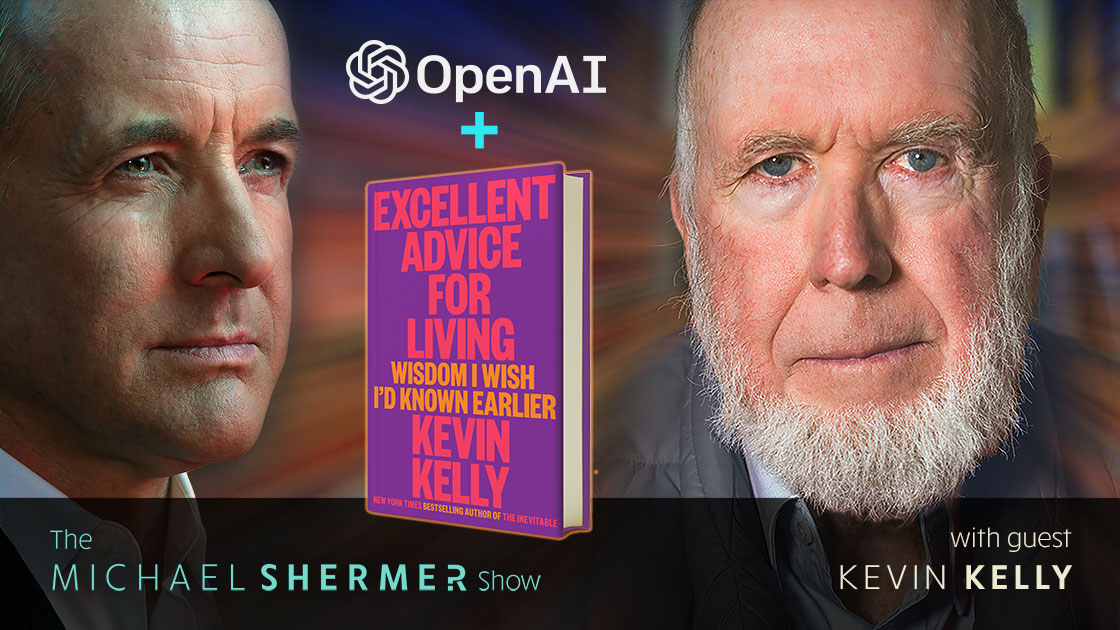
Shermer and Kelly discuss: protopian progress • ChatGPT • artificial intelligence; an existential threat? • evolution • cultural progress • self-driving cars • innovation • social media • putting an end to war • compound interest and the long term effect of small changes • why you don’t want to be a billionaire • beliefs and reason • setting unreasonable goals • persistence as key to success • probabilities and statistics, not algebra and calculus • investing: buy and hold • how to fully become yourself.
America is being torn apart. Amid growing strife, many people are experiencing angst concerning the future of this country, a country once renowned for its exuberant spirit of discovery, progress, liberty. From across the increasingly tribal political landscape, one can observe attacks on the ideas that fueled America’s spectacular rise: reason, individualism, and political freedom. From the illiberal left the “woke” phenomenon has emerged, rising to dominance in cultural institutions and calling for “canceling” those institutions, symbols, and even thoughts…

Shermer and Berent discuss: nature/nurture genes/environment biology/culture • language and innate knowledge • what babies are born knowing • how people reason about human nature • dualism • essentialism • theory of mind • the nature of the self • innate beliefs in the soul and afterlife • free will and determinism • how people think about mental illness and disorders • how one’s theory of human nature effects one’s attitudes about nearly everything.

Ever since the Enlightenment philosopher David Hume outlined the “Is-Ought” problem—that we cannot derive an ought from an is, or we cannot determine the way something ought to be morally based on the way things are in nature (the classic example being slavery—because ants practice slavery that doesn’t make it natural and therefore acceptable for humans to practice slavery)—people have struggled to figure out on what basis should moral values be grounded. Of course, theists argue that God is that…
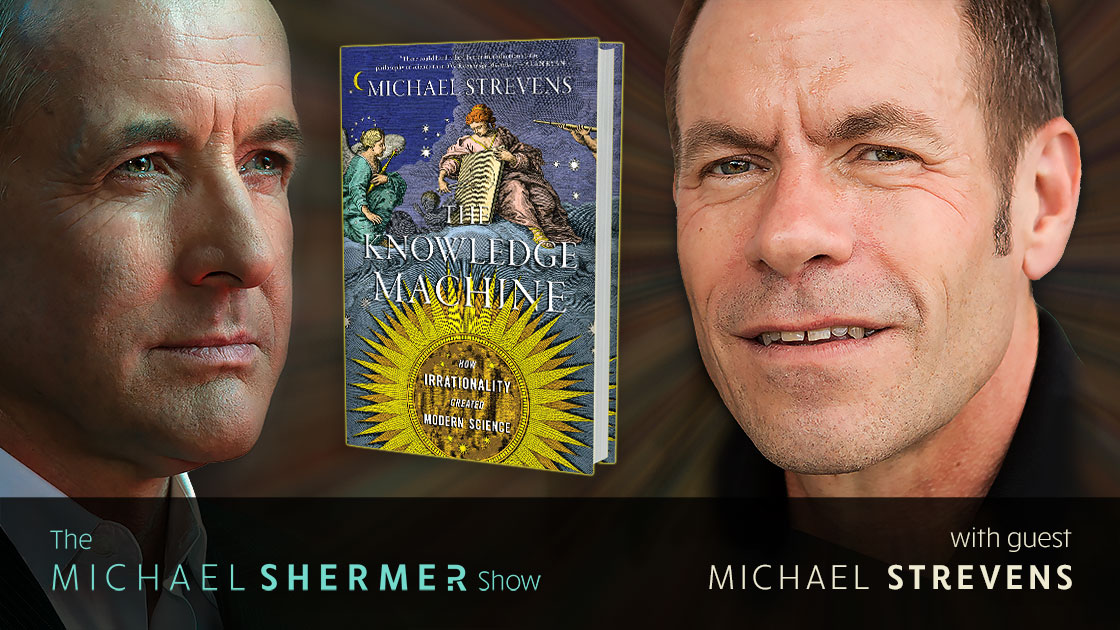
Shermer and Strevens discuss: irrationality and how it drives science • the knowledge machine • the replication crisis, what caused it, and what to do about it • verification vs. falsification • the iron rule of explanation • Bayesian reasoning vs. falsification • climate/evolution skeptics • model dependent realism • humanism • theistic arguments for: God, origin of life, morality, consciousness • known knowns, known unknowns, and unknown unknowns • how to evaluate media sources of science.
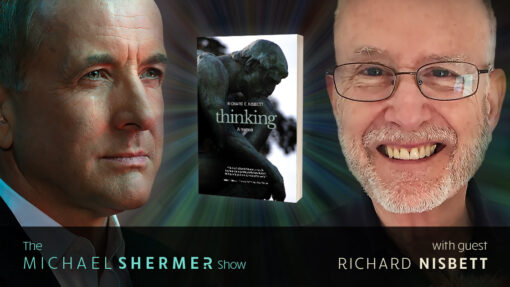
In a wide-ranging conversation Shermer and Richard Nisbett discuss Nisbett’s research showing how people reason, how people should reason, why errors in reasoning occur, and how much you can improve reasoning.
Michael Shermer is now writing on Substack with a new, weekly column called Skeptic: Examining the World Through a Scientific Lens. PLUS in a wide-ranging conversation Shermer and Richard Nisbett discuss Nisbett’s research showing how people reason, how people should reason, why errors in reasoning occur, and how much you can improve reasoning.
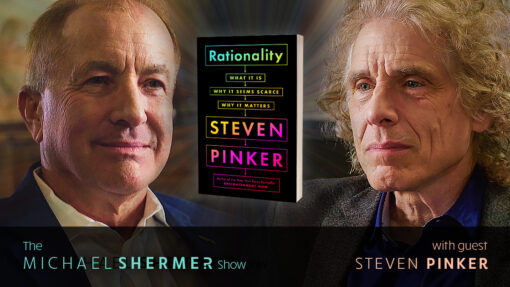
In episode 219, Michael Shermer speaks in person with Harvard psychologist Steven Pinker about his new book Rationality, about how today humanity is reaching new heights of scientific understanding — and also appears to be losing its mind. How can a species that developed vaccines for COVID-19 in less than a year produce so much fake news, medical quackery, and conspiracy theorizing?
In episode 219, Michael Shermer speaks in person with Harvard psychologist Steven Pinker about his new book Rationality, about how today humanity is reaching new heights of scientific understanding — and also appears to be losing its mind. How can a species that developed vaccines for COVID-19 in less than a year produce so much fake news, medical quackery, and conspiracy theorizing?

In episode 212, Michael Shermer speaks with Gale Sinatra and Barbara Hofer about the key psychological explanations for science denial and doubt that can help provide a means for improving scientific literacy and understanding — critically important at a time when denial has become deadly.
In episode 212, Michael Shermer speaks with Gale Sinatra and Barbara Hofer about the key psychological explanations for science denial and doubt that can help provide a means for improving scientific literacy and understanding — critically important at a time when denial has become deadly.

In episode 211, Michael Shermer speaks with Ashley Rindsberg about his book The Gray Lady Winked in which he pulls back the curtain to reveal an eye-opening, often shocking, look at the New York Times’s greatest journalistic failures, so devastating they changed the course of history.
In episode 211, Michael Shermer speaks with Ashley Rindsberg about his book The Gray Lady Winked in which he pulls back the curtain to reveal an eye-opening, often shocking, look at the New York Times’s greatest journalistic failures, so devastating they changed the course of history.
In episode 205, Michael Shermer speaks with Richard Dawkins about evangelizing for evolution, science, skepticism, philosophy, reason, and rationality, based on his new book Books Do Furnish a Life: Reading and Writing Science.

Michael Shermer and Richard Dawkins discuss: conversations with Neil DeGrasse Tyson, Steven Pinker, Matt Ridley, and Christopher Hitchens • Popperian falsification vs. Bayesian reasoning • evolutionary adaptationism • the myth of natural selection as a “force” • E.O. Wilson and group selection, multilevel selection, and other misunderstandings about evolutionary theory • metaphors and analogies in science: artificial selection • convergent evolution • ETIs • Trumpism, and more…
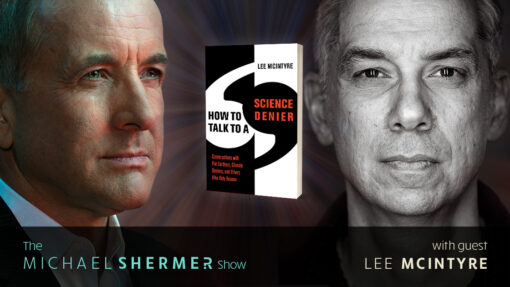
Science deniers are not merely uninformed—they are misinformed. How can we get them to change their minds and accept the facts when they don’t believe in facts? In episode 203, Michael Shermer speaks with Lee McIntyre about how to talk to science deniers such as flat earthers, climate deniers, and others who defy reason, and why it’s important to do so.
Science deniers are not merely uninformed—they are misinformed. How can we get them to change their minds and accept the facts when they don’t believe in facts? In episode 203, Michael Shermer speaks with Lee McIntyre about how to talk to science deniers such as flat earthers, climate deniers, and others who defy reason, and why it’s important to do so.
NEXT →





















